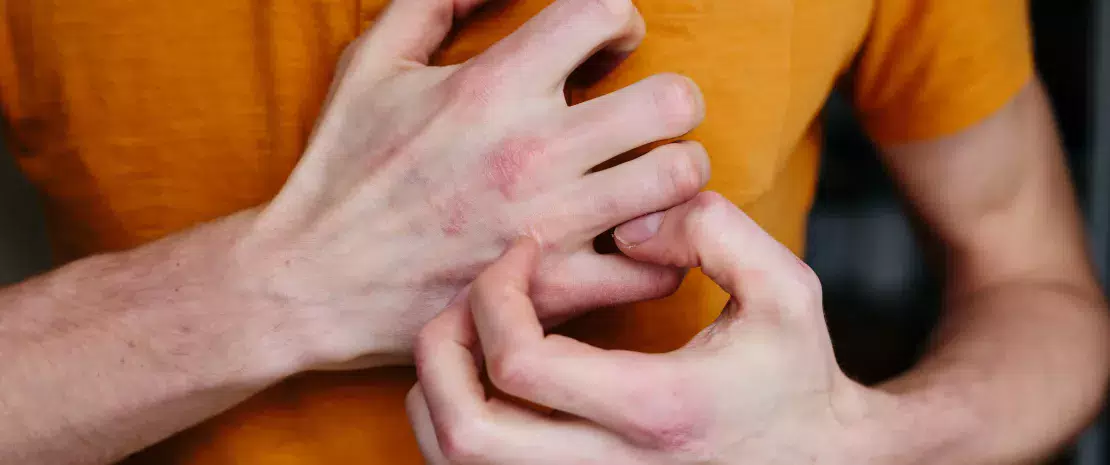Psoriasis and microbiota
Psoriasis is a skin disease of inflammatory origin, caused by the epidermis renewing itself too quickly. Genetic predisposition, associated with various factors including microbiota imbalance, makes its onset more likely.
- Learn all about microbiota
- Microbiota and related conditions
- Act on your microbiota
- Publications
- About the Institute
Healthcare professionals section
Find here your dedicated section
Sources
This article is based on scientific information
Sections

About this article
Psoriasis is a chronic disease alternating between flares and periods of remission, of variable length and intensity.
Epidermis renewing itself too quickly
In the vast majority of cases, psoriasis presents in the form of red patches covered with white scales, located primarily on the elbows, knees, scalp, and lower back. Although it is neither serious nor contagious, this cutaneous condition is, nevertheless, burdensome and has a serious impact on quality of life.
An impoverished intestinal microbiota
The mechanism for the inflammation that characterizes psoriasis is now known: the epidermis is replaced in 4 to 6 days instead of the normal 3 weeks, leading to an accumulation of dead skin and local inflammation. Conversely, the cause remains unknown. Several genetic and environmental risk factors have been identified, but now we need to understand how they interact. We know that stress, certain medications (beta blockers, anti-hypertensives, interferon alpha, etc.) and certain ENT infections increase the likelihood of flares. The role of the intestinal and cutaneous microbiota has also been highlighted. Indeed, an imbalance has been observed in the composition of the cutaneous microbiota in the psoriatic lesions compared to healthy skin, although the disease is not related to any pathogen in particular. For its part, it seems that the intestinal microbiota controls cutaneous inflammation by altering the immune response. The exact molecular mechanisms remain largely unknown. However, it is suspected that overrepresented pro-inflammatory bacteria cause the inflammation.
No cure
At present, no treatment exists to cure psoriasis.
Treatment is based on the application of corticosteroid-based products and vitamin D3 analogues during flares, combined with hydrating creams. Phototherapy is indicated in extended forms, but its use should be limited. Serious forms benefit from other treatments that should be carefully monitored. Research is currently being carried out to evaluate the impact of probiotics on localized cutaneous inflammation and dysbiosis.












